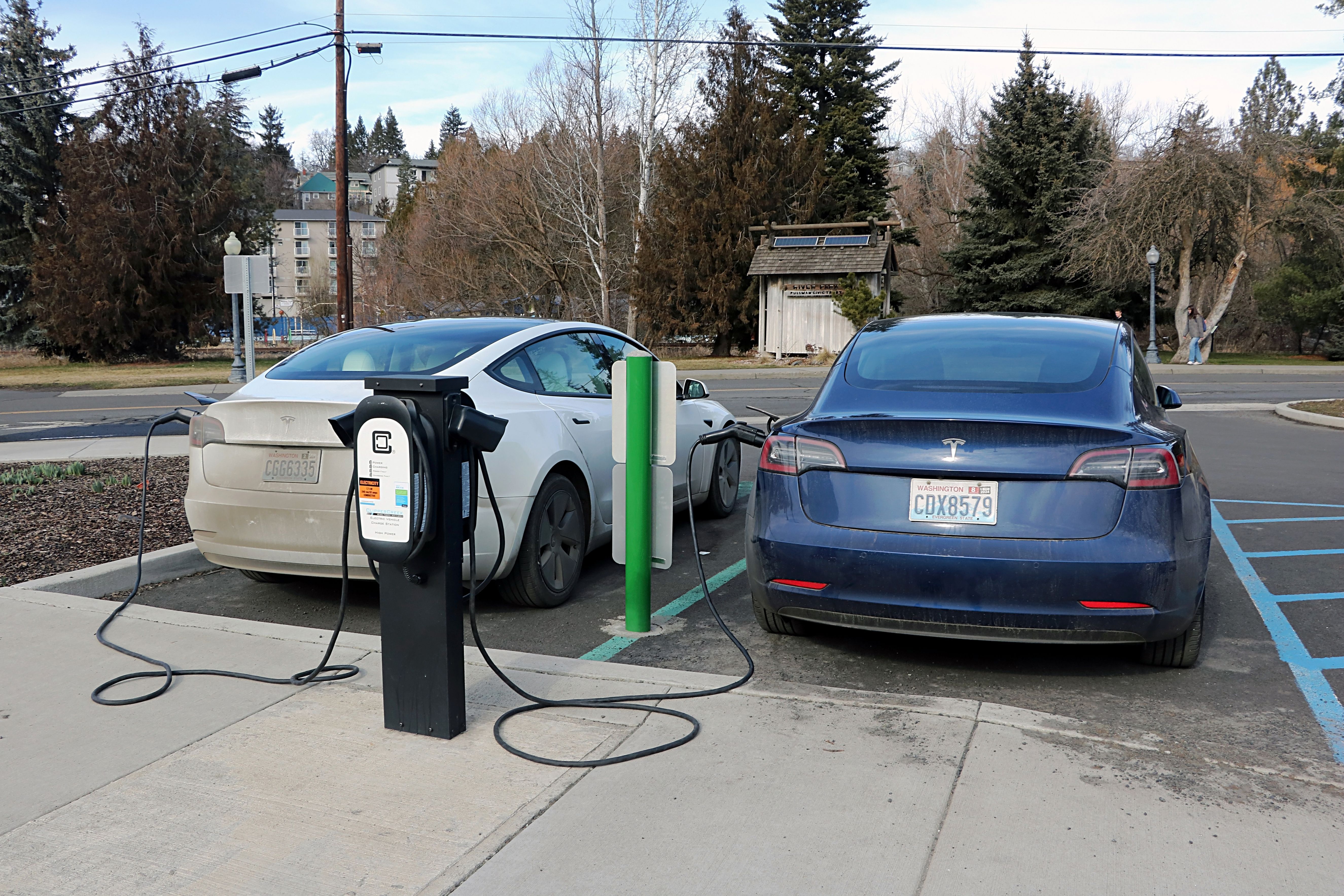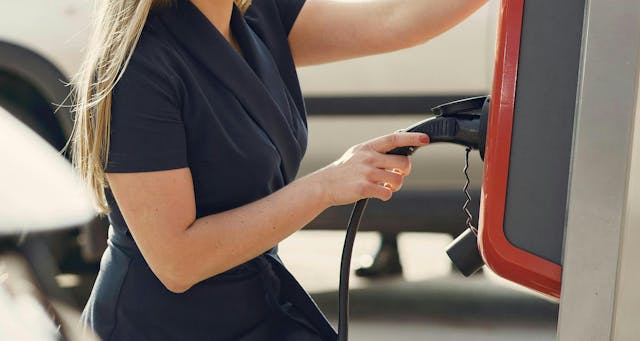How to Stay Updated on Industry Developments When You Buy EV Charging news
How to Stay Updated on Industry Developments When You Buy EV Charging news
Blog Article
New Advancement in EV Charging: Just How the Sector Is EVolving to Meet Need
As the electrical vehicle (EV) market proceeds to increase, the billing facilities is undertaking considerable makeovers to deal with the rising demand. The ramifications of these innovations increase crucial questions about the future of EV charging and its function in the more comprehensive energy community.
Growth of Charging Framework
The fast growth of electrical automobile (EV) charging infrastructure is an essential part in promoting the extensive fostering of electrical mobility. As governments, exclusive firms, and consumers significantly acknowledge the value of lowering carbon emissions, investments in charging networks have surged. This facilities development is important to minimize variety stress and anxiety, making sure that EV customers have hassle-free accessibility to billing terminals.
Substantial innovations accountable terminal modern technology and release approaches have actually arised. Urban areas are seeing an expansion of public charging stations, while country areas are progressively being incorporated into the charging network. Furthermore, partnerships between automotive manufacturers and billing companies are becoming more typical, helping with the establishment of comprehensive networks that boost individual experience and accessibility.
Furthermore, the integration of renewable resource sources right into charging terminals is getting momentum, advertising sustainability in the EV environment. This shift not just supports ecological goals yet likewise aligns with the increasing demand for environment-friendly energy remedies among customers.
Ultra-Fast Charging Technologies
Ultra-fast charging modern technologies represent a substantial leap onward in the EV charging landscape, making it possible for electrical lorries to charge in a fraction of the time compared to typical billing methods. These innovations normally deliver power levels going beyond 150 kW, with some systems rising to 350 kW or more, significantly lowering billing times to as little as 15-30 mins for a considerable cost.
Key allowing modern technologies include innovations in battery chemistry, power electronics, and thermal management systems. High-capacity batteries with boosted thermal security allow for faster charging without overheating. EV Charging news. Additionally, advancements accountable framework, such as liquid-cooled cable televisions and modular charging stations, assist in reliable power transfer, boosting the overall user experience
Major automobile makers and modern technology companies are proactively purchasing ultra-fast charging networks, recognizing the crucial function they play in getting rid of array anxiousness and increasing the adoption of electrical lorries. As these modern technologies come to be extra widely available, the EV market is anticipated to witness considerable growth, making electrical movement a more attractive choice for customers. Generally, ultra-fast billing modern technologies are crucial fit the future of lasting transportation, paving the way for a more extensive and efficient billing environment.
Smart Grid Combination

Through demand response techniques, wise grid systems can change charging routines based upon grid conditions and electrical energy rates. As an example, during periods of high need, charging can be postponed to off-peak hours, resulting in reduced expenses for consumers and decreased stress on the grid. Additionally, vehicle-to-grid (V2G) technologies make it possible for EVs to release energy back into the grid, giving secondary solutions and enhancing grid security.
Combination with renewable resource resources even more boosts the sustainability of EV billing. By lining up charging tasks with periods of high solar or wind generation, clever grids promote a greener charging infrastructure. Ultimately, clever grid combination not only sustains the growing need for EVs but additionally adds to a much more resilient and lasting energy future, placing the market for lasting success.
Battery Technologies
In the middle of the quick evolution of electrical cars (EVs), battery innovations stand at the center, driving developments in sustainability, efficiency, and efficiency. As the demand for EVs surges, scientists and producers are focusing on improving battery technologies to attend to go now obstacles such as range stress and anxiety and billing times.
Lithium-ion batteries stay one of the most extensively made use of technology, yet new materials and chemistries are emerging to enhance power thickness and durability. Solid-state batteries, as an example, assure better power storage space ability and enhanced safety by replacing liquid electrolytes with strong ones. This shift can dramatically lower the threat of fire and increase the life-span of batteries.
Moreover, improvements in battery reusing processes are essential for sustainability. Firms are creating approaches see it here to recoup beneficial products like lithium, cobalt, and nickel from utilized batteries, promoting a circular economy and decreasing environmental impact.

Global Charging Criteria

Efforts are underway to establish worldwide billing criteria that facilitate compatibility among different EV versions and billing stations. Organizations such as the International Electrotechnical Commission (IEC) and the Society of Automotive visit their website Engineers (SAE) are working collaboratively with vehicle suppliers and power companies to produce thorough standards. EV Charging news. These criteria aim to improve the charging process, decrease the requirement for several adapters, and improve individual experience
In addition, standardization can dramatically bolster the expansion of the billing network, as it encourages investment by making infrastructure development much more effective and foreseeable. As the EV market develops, a unified strategy to charging requirements will certainly be important for ensuring that consumers can charge their vehicles conveniently and accurately, therefore sustaining the more comprehensive shift to sustainable transportation.
Conclusion
The electrical vehicle billing industry is undergoing significant improvement to deal with the rising need for sustainable transportation. Developments in billing framework, ultra-fast innovations, wise grid integration, and cutting-edge battery services are essential in enhancing individual experience and functional efficiency.
Urban areas are seeing a spreading of public charging stations, while country areas are gradually being integrated right into the billing network. Additionally, developments in billing framework, such as liquid-cooled cables and modular charging stations, promote reliable power transfer, enhancing the general customer experience.
On the whole, ultra-fast charging innovations are essential in forming the future of lasting transportation, paving the way for a much more considerable and reliable charging environment. - EV Charging news
By straightening billing tasks with durations of high solar or wind generation, clever grids advertise a greener billing framework.Initiatives are underway to establish global charging standards that help with compatibility among various EV designs and charging stations.
Report this page